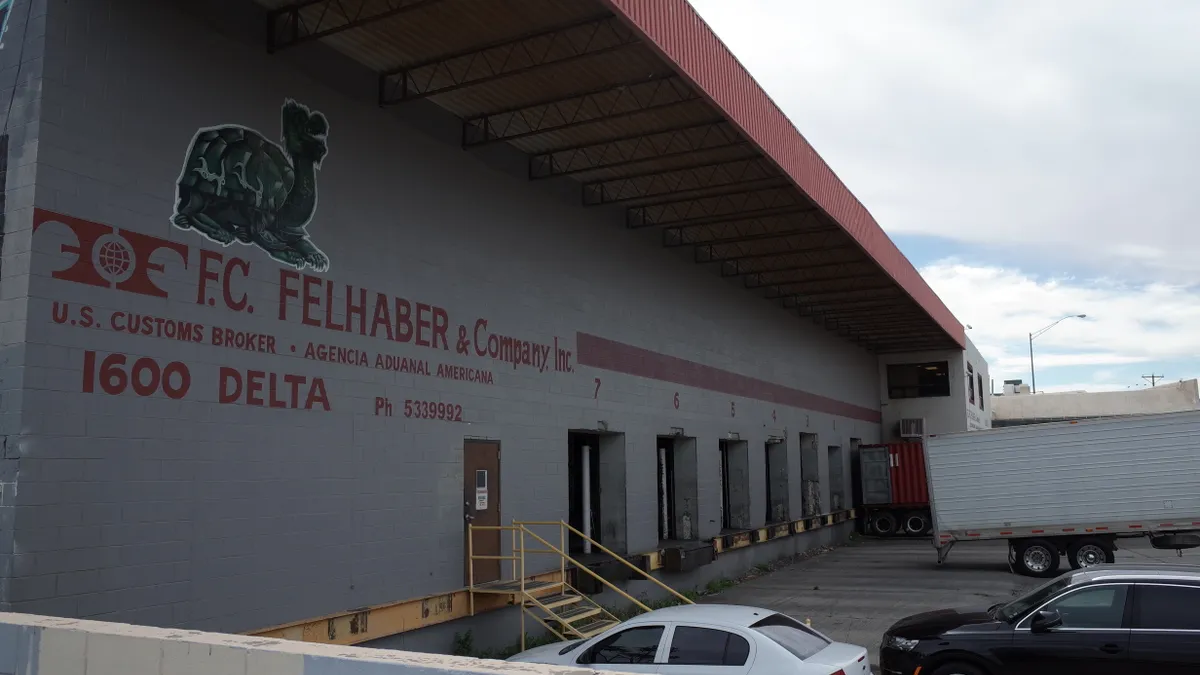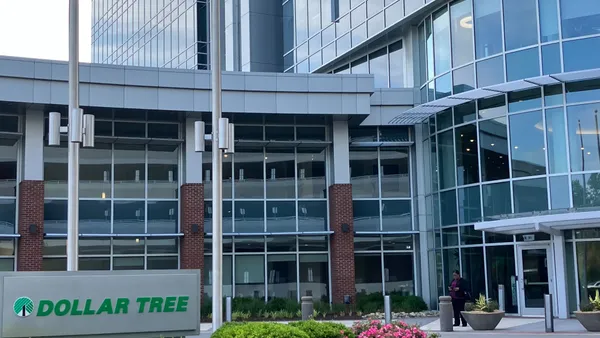EL PASO, Texas — Local businesses in El Paso, Texas, are already seeing the effects of truck congestion and border delays, despite Donald Trump walking back his threats to close the U.S.-Mexican border. Trump instead, gave Mexico a "one-year warning" to deal with what he has described as a "crisis" of illegal immigration and drugs.
Jaime Mejia, an El Paso warehouse worker for customs broker F.C. Felhaber, told Supply Chain Dive only about one-fifth of the typical number of trucks that traverse the border are able to cross from Mexico to the U.S., leading to significantly less product in the facility where he works. This is due to congestion caused by the reassignment of Customs and Border Protection staff on the border. If the retailers don't receive the merchandise, the warehouse workers are not paid. "So all of these are cuts," Mejia said, "Not personnel cuts, but cuts in our hours — it affects us a lot."
Mexico is the United States' third largest trading partner, so any slowdown in cross-border traffic is bound to have an impact on businesses near and far. And Trump's one-year grace period for a border closure doesn't eliminate congestion problems at the border as a result of Customs and Border Protection (CBP) staff reassignments. The agency began shifting personnel to address hundreds of migrants being placed into custody each day.
"CBP will have to close lanes, resulting in increased wait times for commercial shipments and travelers," the agency said in a statement last week. Truck wait times have already risen by 500%, and many businesses along the border saw immediate impact to their sales and operations.
Kimberly Rosas, an employee at JR Trading, a small retail store in El Paso, said she sees about half the usual number of clients. "The people that usually buy from us, they come from over there, so we’ve seen the sales go down dramatically," she told Supply Chain Dive.
The National Retail Federation (NRF) sent a letter to six Trump administration officials Thursday (before Trump said he would not close the border for one year) warning of "significant supply chain disruptions for U.S. retailers." NRF President and CEO Matthew Shay said a shutdown would affect businesses across the U.S., but small businesses in border communities "would face a disproportionate burden" and "would see a significant reduction in daily sales" as a result of a shutdown or closures along the border.
Rosas said employees who live in Mexico and work in Texas are arriving late to work due to the delays. "Some bosses here if they come late, they tell them to go back," Rosas said.
Beginning Saturday, CBP will close the Bridge of the Americas to commercial traffic every Saturday, potentially creating further delays for trucks crossing the border.
"I don't know how we're going to do it," Mejia said when asked how his facility is preparing for the bridge closure.
The warehouse has significantly fewer products from Vitromex, a Mexican manufacturing company, than usual since trucks are unable to cross the border. Mejia said the walls and floors are typically full of the product, and the warehouse receives 20 stacks of pallets per day. Now, the facility receives just one or two stacks.
"It's flowing very slowly. Too slowly," he said.
As local businesses continue to feel the immediate impact of border slowdowns, Trump — while no longer promising to close the border — is threatening to slap tariffs on Mexican imports.
"If the drugs don't stop or largely stop, we're gonna put tariffs on Mexico and products, in particular cars," Trump said in Calexico, California, according to Axios.
Trump tweeted this morning the U.S. would be "forced to Tariff at 25% all cars made in Mexico and shipped over the Border to us." The tariffs, he added, will supersede the United States, Mexico and Canada Agreement (USMCA).















